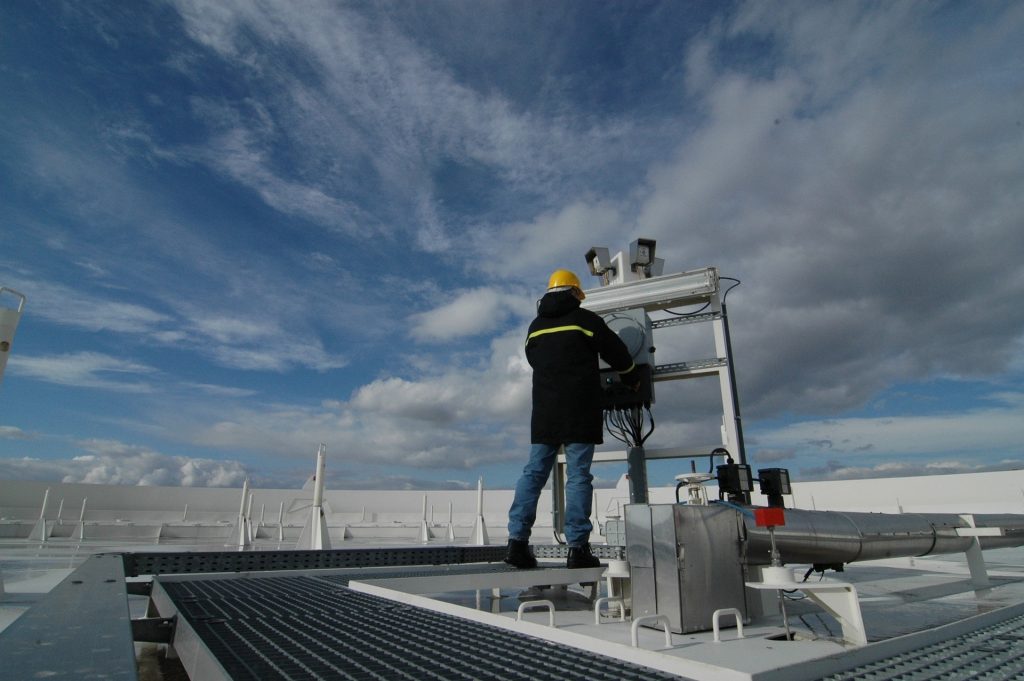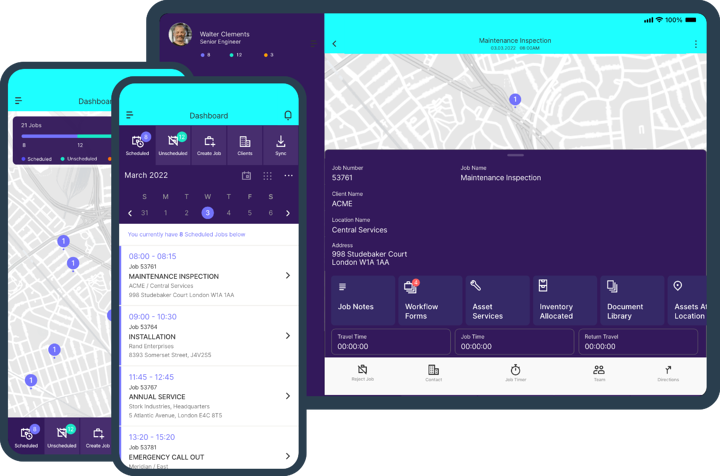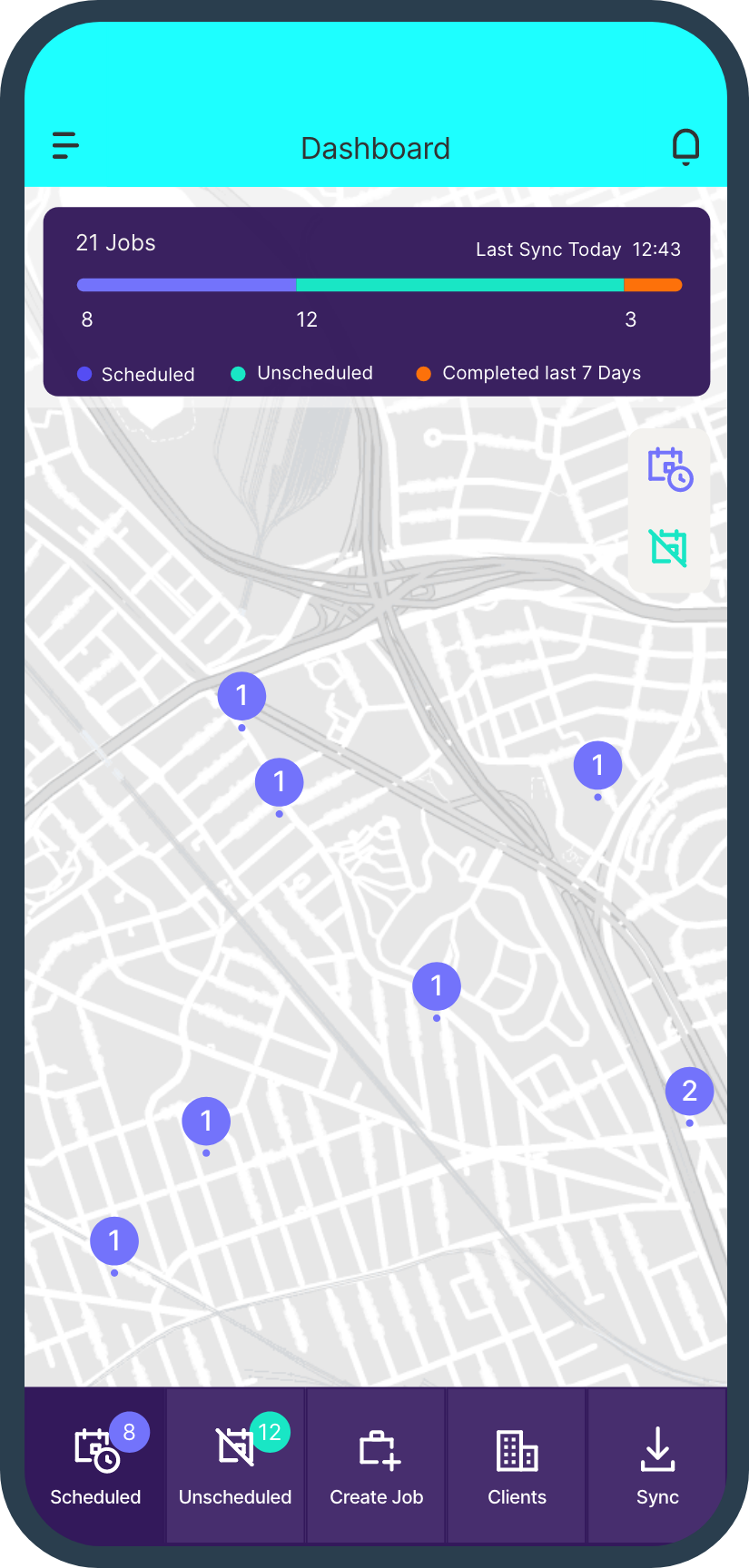The post-pandemic era would have made Building Services businesses stronger. They have had to make big changes to their business and learn some valuable lessons.
Closing offices around the world during the Covid-19 pandemic highlighted some significant lessons to learn and uncovered just how unprepared most building owners were.
Post- Pandemic communication between service partners and facilities managers needed improvement
Field Service partners played a pivotal role in getting office spaces up and running as lockdown restrictions began to ease around the globe.
Building infrastructure, fire, security and health and safety systems needed to be running at peak performance before workers and the public returned to their offices or recreational centres.
Terry Sharp, President of the Building Energy Management trade body said, “With so many commercial buildings left largely unoccupied, it really gave an insight into how unprepared many businesses were in terms of managing their premises efficiently during these periods in general.”
The pandemic highlighted the importance of good communication between building owners, occupiers and their service contractors, has on building efficiency and the performance of their assets.
Building Services businesses who have invested in how they communicate with their customers, either through improving their current processes or introducing automated communication tools, have ensured they continue to meet customer expectations.

Access to buildings has become more challenging for Post-Pandemic Building Services
During the pandemic obtaining access to buildings became more of a logistical challenge as traditional access was replaced with coordinated visits, new building control systems, some of which are entirely managed offsite.
The building itself played a more pivotal role as a new era of contactless visits began to rise. Building controls experts ushered in contactless entry and a smarter, safer way to keep a building secure.
Even as we return to workplaces the legacy of the pandemic will persist as facilities managers who introduced new exit and egress points, minimising physical contact will continue to do so.
With new security measures in place the importance of confirming arrival beforehand is increased and to ensure minimal delays in starting and finishing a service or inspection, service contractors need to communicate better with their clients.
Field Service teams are now well versed in obtaining access or security permissions beforehand.
Investments are being made in engineer and service technician welfare
Field Service engineers and technicians were put under added strain as their role became more challenging during the pandemic. The added stress wasn’t always apparent and the lack of contact with their office based teams meant issues often went un-resolved.
One of the biggest lessons learned by employers over the pandemic was the need for empathy.
They needed to listen and find time to communicate with their teams and not presume their welfare is in a good place just because they are busy.
Employee welfare plays a huge role in absence and is an important factor in limiting burnout.

Tech tools are required to help Building Services teams meet customer expectations
One of the key insights to come out of the pandemic is how cloud based tech and software is going to shape the future of Building Service, Facilities Management and Service Maintenance.
Older legacy systems were already starting to show signs of age and the pandemic accelerated the need to invest in tech.
We are stepping into a more interconnected future with real time insights. The companies served by Field Service businesses are also experiencing a culture shift towards app based solutions and live information and they will expect their partners to follow.
How quickly the working world adapted to video conferencing through Zoom and Google shows when tech is easy to use and intuitive, it will fit within the ecosystem of a business without push-back from their employees.
Tech tools automate tasks, they reduce paperwork and help teams communicate with the customer and between their own teams.
This is a more productive, post-pandemic way of working and those businesses adopting modern solutions through job management software and streamlined field service finances are going to future proof their business.
Building flexibility into service schedules pays off
The unpredictable nature of the pandemic meant schedules changed, jobs were cancelled or call outs came from no-where and service businesses needed to react.
Many businesses are reactive. They plan their schedule over a calendar and when it deviates from Plan A it creates extra admin, wastes hours and puts added strain on an already challenged team.
The pandemic taught us that businesses who build flexibility into their scheduling and communication tools, are better placed to succeed.
Field Service teams who have introduced real time cloud based tools to more efficiently schedule their teams have ensured their customers’ needs will be met and their teams are better supported.
Why Post-Pandemic Building Services will be stronger
The pandemic has taught many businesses are to communicate better with their customers and their own teams. It’s shown us a future that many are already starting to operate in which protects workers and the general public with measures that need to be navigated by service teams, such as physical contact limitations, security measures and extra attention on the performance of vital building assets.
Many Field Service businesses would have been aware of the need to modernise some of their processes. Reduce paperwork, encourage better communication and streamline the process of securing jobs and being paid for them.
The main change the pandemic introduced is the need to push those plans forward and make changes today.

